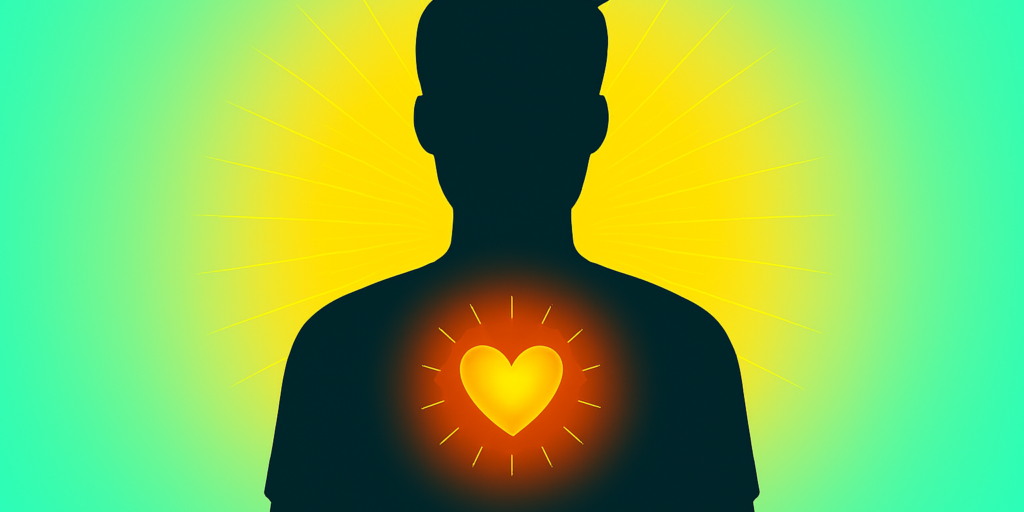Read time 4 minutes
Archith’s Note:
I spoke to Oliver and decided to share his story. He showed great strength and honesty while speaking about his journey with Myasthenia Gravis.
During our conversation, I was deeply moved by his resilience. The way he continues to live with dignity despite challenges is commendable. His words reminded me that even in the face of uncertainty, courage and hope can light the way forward. I hope his story inspires you as much as it inspired me.
Introduction: Understanding Rare Chronic Illness
Rare diseases affect millions worldwide, yet each condition impacts only a small number of people. For patients, this often means years of misdiagnosis and limited treatment options. And the challenge of explaining an ‘invisible’ illness to others.
This is the story of Oliver, a 32-year-old man living with Myasthenia Gravis (MG). It is a rare autoimmune neuromuscular disorder.
My journey reflects the reality of many rare disease patients. It navigates uncertainty, finding strength in small victories, and learning to live with a condition that few people understand.
What Is Myasthenia Gravis?
It is a rare autoimmune disease where the body’s immune system interferes with communication between nerves and muscles. This leads to muscle weakness that worsens with activity and improves with rest.
Common Symptoms of Myasthenia Gravis
- Drooping eyelids (ptosis)
- Double vision (diplopia)
- Weakness in arms and legs
- Difficulty swallowing or chewing
- Fatigue that worsens throughout the day
The Diagnosis: A Long Search
My symptoms began with drooping eyelids and occasional double vision.
Soon, I noticed weakness in my arms and legs. Climbing stairs became difficult, and even chewing food felt exhausting.
At first, doctors suspected stress or anemia. But as my symptoms worsened, I was referred to a neurologist. After antibody tests and nerve conduction studies, I was diagnosed with Myasthenia Gravis.
For me, the diagnosis was both a relief and a shock. I finally had an explanation, but I also realized I was facing a lifelong illness with no cure.
My Daily Life with Myasthenia Gravis
Living with MG means living with unpredictability. Some days, I can manage my routine. On others, even brushing his hair feels like lifting weights.
My daily challenges include:
- Muscle Weakness: Simple tasks like walking, speaking, or swallowing became difficult.
- Fatigue: Rest helps, but exhaustion often lingers.
- Fluctuating Symptoms: Strength may improve in the morning but worsen by evening.
- Emotional Strain: The uncertainty of flare-ups makes planning difficult.
My key Coping Strategies: How I Manages My Illness
Over time, I had developed strategies to manage my illness. These do not cure MG, but they helped me live with stability and dignity.
1. Medical Management
I took medications that improve nerve-muscle communication and suppress the immune system. Regular follow-ups with my neurologist are essential.
2. Energy Conservation
I plan my day carefully, prioritizing important tasks when my strength is highest. Rest breaks are built into my schedule.
3. Nutrition and Hydration
Soft, easy-to-chew foods help during flare-ups when swallowing is difficult. Staying hydrated helped me reduce fatigue.
4. Physiotherapy and Gentle Exercise
Light stretching and breathing exercises maintain mobility without overexertion.
5. Mental Health Support
Counseling and patient support groups provide emotional strength. Sharing experiences with others facing MG reduced my isolation.
My Emotional Journey Was a Tougher Task than Physical Symptoms
My physical challenges of MG are visible, but the emotional impact is often hidden.
- Isolation: Few people understand what I go through.
- Uncertainty: Symptoms can change daily, making life unpredictable.
- Frustration: Everyday tasks others take for granted can feel overwhelming.
Yet I have also discovered resilience. I learned to celebrate small victories, walking a little farther, completing a household chore, or simply having a day with less weakness.
My Lessons from Living with a Rare Disease
My journey offers lessons for anyone facing health challenges:
- Patience is essential: Progress has been slow, but every step mattered and added.
- Self-advocacy is powerful: I try to often educate others about their condition.
- Support systems matter: Family, friends, and patient communities provide strength.
- Hope is necessary: Even without a cure, quality of life can improve with the right strategies.
This is How I Wish to Support Others with a Rare Illness
If you know someone living with a rare chronic disease, here are meaningful ways to help:
- Listen with empathy: Sometimes they need understanding more than advice.
- Be flexible: Plans may change due to sudden flare-ups.
- Offer practical help: Small gestures like cooking a meal or running errands can ease their burden.
- Respect their limits: Encourage them without pushing beyond what their body allows.
Raising Awareness: Why Rare Diseases Matter
Rare diseases may affect only a small percentage of the population. But collectively, they impact millions worldwide. Awareness is crucial because:
- Delayed Diagnoses Are Common: Many patients wait years for answers. I had a tough time with this.
- Research Is Limited: Rare conditions often receive less funding. My family supports me.
- Support Is Scarce: Patients may struggle to find specialists or resources.
By sharing stories like mine, together we can increase understanding. We can reduce stigma and encourage more research into rare conditions.
Conclusion: Strength in the Face of Rarity
My story is not about a cure; it is about courage.
Living with a rare chronic illness means facing uncertainty every day yet choosing to move forward with determination.
My journey reminds us that health is fragile, resilience is powerful, and compassion is essential. For those living with rare diseases, every day is a testament to strength. For the rest of us, their stories are a call to awareness, empathy, and action.
DISCLAIMER
This blog reflects personal experiences and viewpoints. It is not a substitute for professional medical advice.


